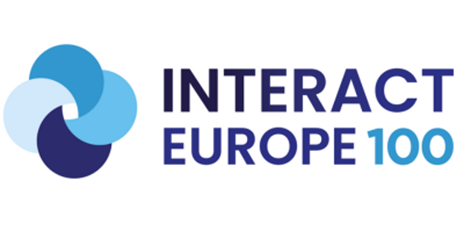We are happy to report that with December 2023 we started a new European project called “Interact Europe 100”.
Interdisciplinary work is a cornerstone of providing effective healthcare, but it is often difficult to implement given high specialization of different professions and disciplines, strict hierarchies or structural and systemic issues. However, proper interdisciplinary work is also linked to better therapy outcomes, less service fragmentation and overall better results of patients and their families as well as higher job preformance and enjoyment for the healthcare workers. One of the fields where such work is most important in cancer care and oncology – where not only internistic oncologists but also surgeons, radiation oncologists, nurses, dietitians, psychologists, occupational and physiotherapists and others work together in the cancer care continuum.
The focus of the INTERACT Europe 100 is to implement an inter-speciality training program for health care professionals of different disciplines and increase their interdisciplinary efforts to provide better care for their patients. The project has been co-financed by the European Commission as part of the EU4Health program and is bringing together 42 partners from Europe coordinated by the European Cancer Organisation. The aim is to recruit a 100 cancer centres in Europe and implement the training, with an additional specific focus on pediatric cancer care and supporting the cancer care services in Ukraine.
Our team collaborates with our colleague Kathrin Kirchheiner from the University Clinic for Radiation Oncology of the Medical University of Vienna and leads the Workpackage Evaluation. We aim to use mixed methods and participatory design taking into account opinions and experiences of a diverse range of professionals as well as patients to determine what outcomes need to be evaluated and how.
From our team Tobias Schiffler, Honja Hama and Maren Jeleff together with Igor Grabovac are leading the efforts. More on the project from the web of the Medical University of Vienna.
Follow our social media for more information on the project.
